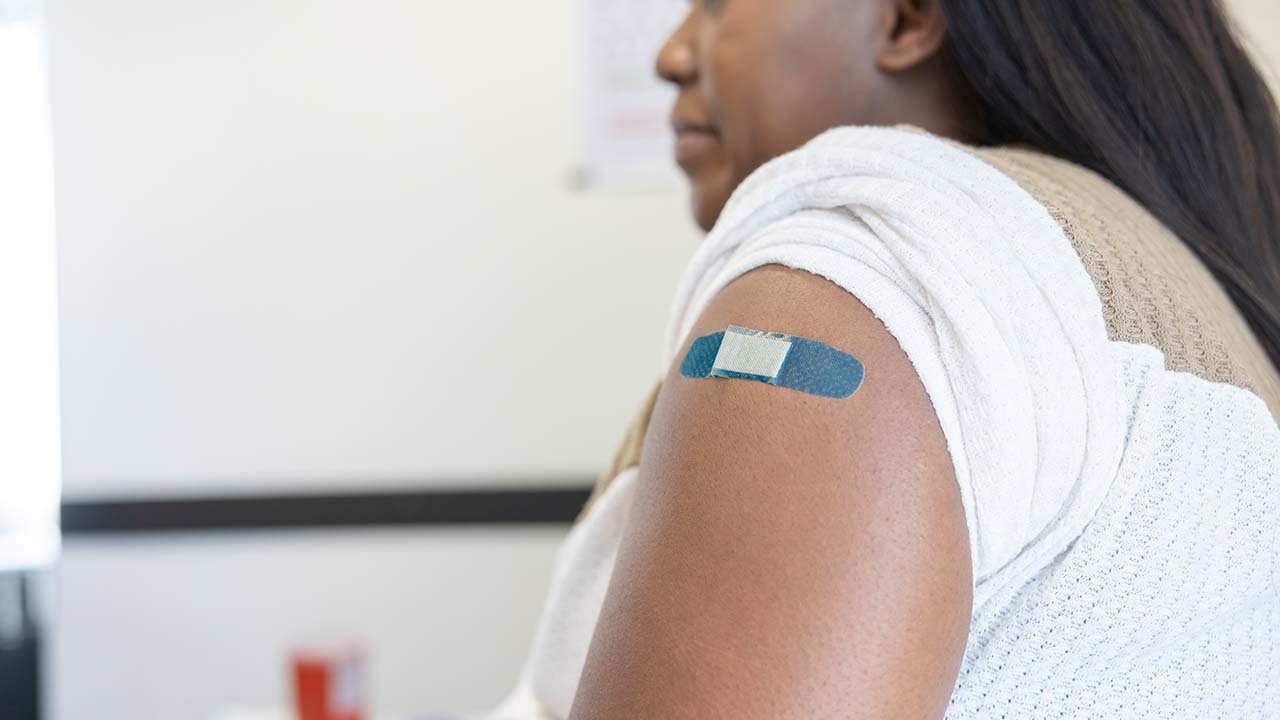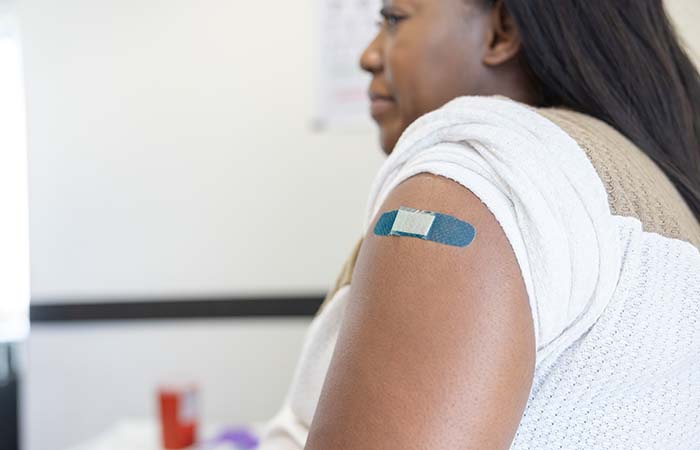In Analysis
Follow this topic
Bookmark
Record learning outcomes
As pharmacies prepare for another record flu season with new systems and services, questions over access remain, finds Saša Janković
It looks like this could be another bumper year for flu vaccination.
Data from Community Pharmacy England (CPE) shows more than 4 million NHS Business Services Authority claims from community pharmacies in the 2024/2025 flu vaccination season, which analysis from the Company Chemists’ Association (CCA) says is the highest number administered outside of the pandemic, and nearly a 10 per cent growth in the number of flu vaccines administered compared to 2023/2024.
CCA data shows 9,291 pharmacies participated in the 2024/2025 programmes, with the average participating pharmacy administering over 400 vaccines, and 938 pharmacies reaching more than 1,000 vaccines in the season.
Indeed, Nick Alderson, head of pharmacy operations at the Pharmacy+Health chain, says last year was an exceptionally good vaccination period: “We broke all our records – completing more vaccinations in the first few weeks of the season than we had in the whole year before.”
Supply and demand
Nonetheless, CPE says the Department of Health and Social Care (DHSC), the UK Health Security Agency (UKHSA) and NHS England (NHSE) “continue to seek to improve on the uptake rates that occurred in the 2024/2025 flu season” and “aim to equal or improve on the 2024/2025 uptake”.
This, in itself can bring challenges when it comes to ordering enough vaccine to meet demand, with NHSE recommending that pharmacies place orders with more than one manufacturer.
“Over the years demand for flu vaccinations has exceeded stock availability early into the season, but this has stabilised over the last couple of years,” says Reshma Malde, pharmacist at John Bell & Croyden.
Another mitigating force has been the adoption of a combination of bookings via the NHS app, other booking systems, and walk-in appointments. Malde says this helps maintain staffing levels, handle peaks more effectively and plan the work force, reducing burnout and patient frustration, as well as helping pharmacies stagger vaccine orders to help with storage constraints and reduce waste.
New vaccine IT system
A further development for this year’s programme that pharmacies have had to get to grips with is the launch of a new community pharmacy Point of Care (PoC) IT Supplier Contractual Framework, announced by NHSE in June, which allows pharmacy owners to choose which PoC system they use to make their clinical records for the flu and Covid-19 vaccination services.
IT suppliers listed on the new framework have been assured as having met specific minimum standards by NHSE. At the time of writing, and subject to all having achieved successful assurance, it is anticipated that pharmacies will be able to choose from the following five PoC systems:
- Cegedim’s Pharmacy Services
- Optum (formerly EMIS) Pinnacle Outcomes4Health
- Positive Solutions HxConsult
- RAVS (the NHS ‘in-house’ Record A Vaccination Service platform)
- Sonar.
“The time and money that goes into developing a digital PoC system for the delivery of NHS vaccinations is considerable,” says Tracey Robertson, managing director of Cegedim Rx, of her company’s involvement in the framework. “For us it was a non-negotiable investment to ensure community pharmacies receive the right support now they have been given the choice to decide what they use, rather than systems being commissioned regionally.”
“This framework will ease record keeping in the pharmacy for flu vaccination and like current pharmacy IT systems will automatically notify the patient’s GP practice of the vaccination,” says Mark Burdon, pharmacist at Burdon Pharmacy Group in Newcastle-upon-Tyne.
“It will also streamline the claims process; and be fully funded by NHS England for the 2025/2026 financial year. However, its efficiency can only be assessed as the winter progresses, but I welcome this initiative as it will bring competition into the market and improve the efficiency of pharmacies at the busiest time of the year.”
Alongside this, all community pharmacies providing the flu vaccination service can use the National Booking System (NBS), which will then open up for patients to book their flu jabs from 1 September.
“For many pharmacies, this may help raise awareness of the service to a wider audience,” says Lucy Morris, patient services manager at Numark Pharmacy. “For others it may provide a challenge if they have their own booking platform. However, for pharmacies also offering the Covid vaccination service it will help to simplify the booking of combined Covid and flu vaccination appointments.”
Last flu season for DSPs
Another change on the horizon is that this will be the last season that distance selling pharmacies (DSPs) are allowed to provide flu and covid vaccinations from their premises, following Community Pharmacy Contractual Framework (CPCF) changes in March which mean that, from 1 October 2025, DSPs can no longer deliver in-person Directed (Advanced, National Enhanced, or Enhanced) Services on site.
From this date, such services must instead be provided remotely or off-site, with approval from the local integrated care board (ICB), although a temporary one-off exception allows in-person flu and Covid-19 vaccinations until 31 March, 2026 to support winter pressures and in recognition that vaccination stock had already been ordered from suppliers.
Opinions vary on this change, with some seeing it as a way to enable services propositions to be streamlined, and others concerned that it may reduce access.
“It was never intended that DSPs were to provide face-to-face services,”says Alderson. “It feels like a reset back to where it started, rather than a major change.”
Burdon agrees, saying: “I am happy with this change. Vaccine service provision through DSPs on site was introduced when such services were a small part of the NHS community pharmacy offering, and was initially in place to ensure adequate provision during the pandemic.
"This situation has since changed and has meant that increasingly, with the provision of such services, DSPs can establish and provide such services locally, undermining the integrity of the market entry controls in the Pharmacy and Local Pharmaceutical Services (PLPS) regulations.”
However, while acknowledging “the importance of equitable access to pharmacy services across all settings”, Royal Pharmaceutical Society England board chair Tase Oputu says: “As this transition begins, there is a risk it could reduce accessibility for some patients, particularly those who are vulnerable.
"This could have a knock-on effect on vaccination coverage and ultimately impact public health. It’s important that changes to services do not unintentionally create barriers for patients who rely on accessible, local care.”
Improving access for children
One cohort which is set to benefit in the 2025/2026 flu season are children aged two to three years, thanks to a new trial Advanced Service announced by NHSE which will see community pharmacies provide seasonal influenza vaccination to eligible children, aiming to improve access and uptake for individual protection and to reduce transmission to the wider population.
Calling it “a vote of confidence for the role of community pharmacy in driving uptake and coverage of NHS vaccines, particularly amongst underserved communities”, CCA chief executive Malcolm Harrison says: “We estimate that around 80 per cent of pharmacies have a private vaccination service so pharmacy teams are well versed in administering a wide range of different vaccines. Vaccines are second only to clean water in preventing disease, so all efforts to drive uptake are absolutely critical to delivering on the prevention agenda”.
Proactive progress
The direction of travel is to have more vaccinations delivered from pharmacy – such as local NHS pilots for MMR, HPV, and the recent legislative changes which allow a pharmacy technician to supply and administer certain medicines under a patient group direction (PGD) seeing technicians included in the current national flu and Covid-19 PGDs – boosting workforce capabilities and access to vital services.
But should commissioners support further vaccinations schemes in community pharmacies? The sector thinks so.
“The success of last winter’s flu vaccine programme shows that community pharmacy is a strong partner for the NHS, and the recent regional commissioning of pharmacies to deliver RSV and pertussis vaccines shows that health systems are beginning to take advantage of the opportunity,” says Harrison. “With growing demand on NHS services and variability in uptake there is a need to move faster and further. Commissioning all adult vaccines from community pharmacy is the logical next step.”
“Commissioning takes time but that doesn’t translate into inaction within pharmacy,” says Alderson.
“Many, including us, have launched affordable private services to help support patients, and we’re in a strong position to be able to smoothly pivot into NHS supply.”
Morris adds that “lobbying is progressing to utilise [pharmacy’s] skillset more effectively to support the NHS’s aim to improve vaccination uptake”, but Malde stresses that “pharmacies will need the right support and investment to expand their vaccination services”.
What is not in doubt is that commissioning pharmacies to take on a greater role in vaccination delivery would ensure better reach to underserved communities, increase uptake and free up GP capacity and hospital beds at a critical time for the NHS.


